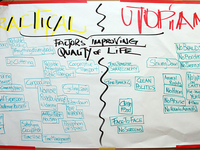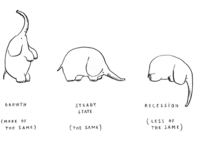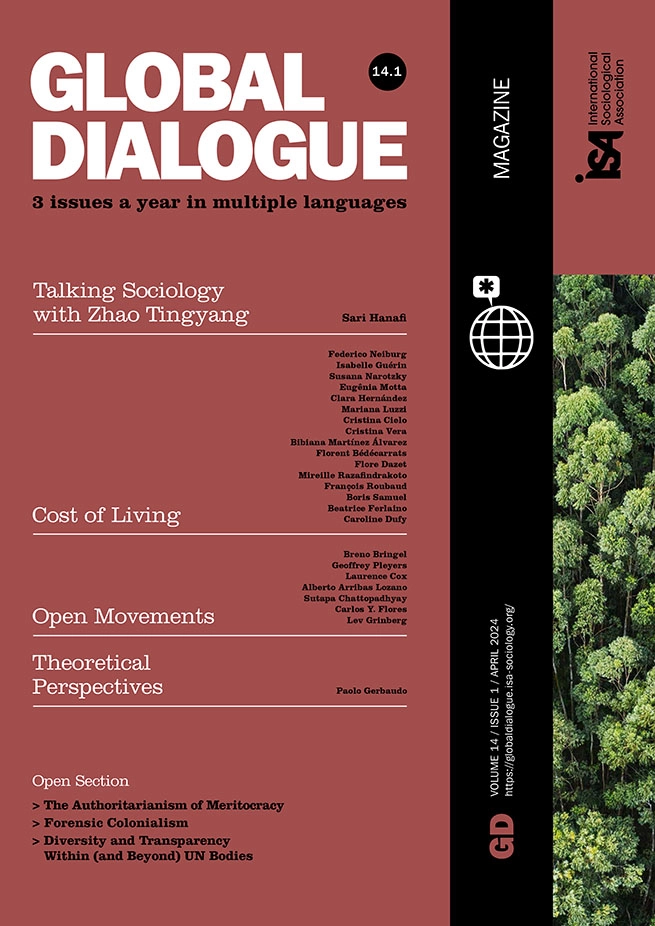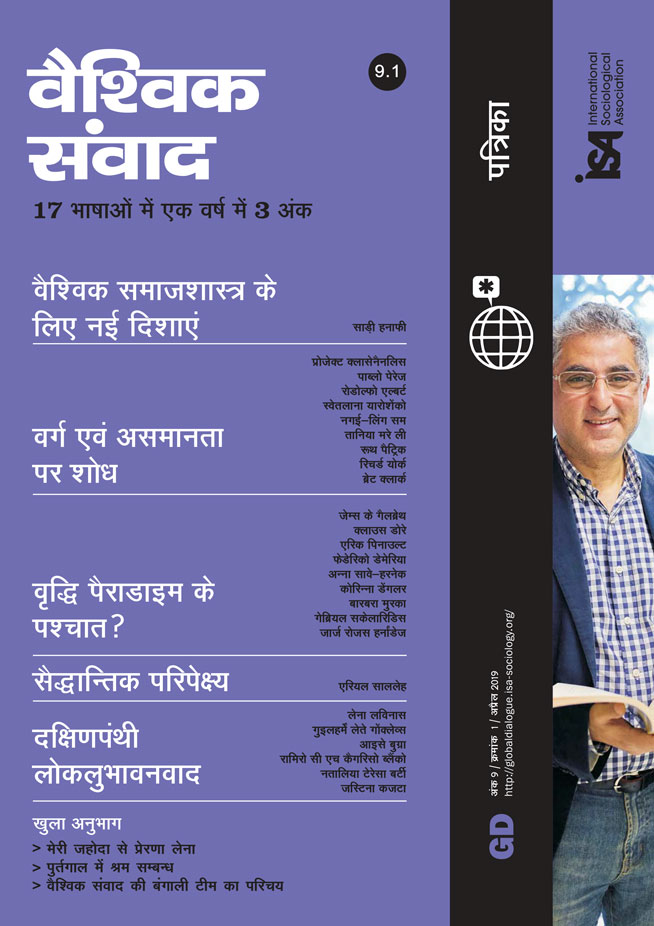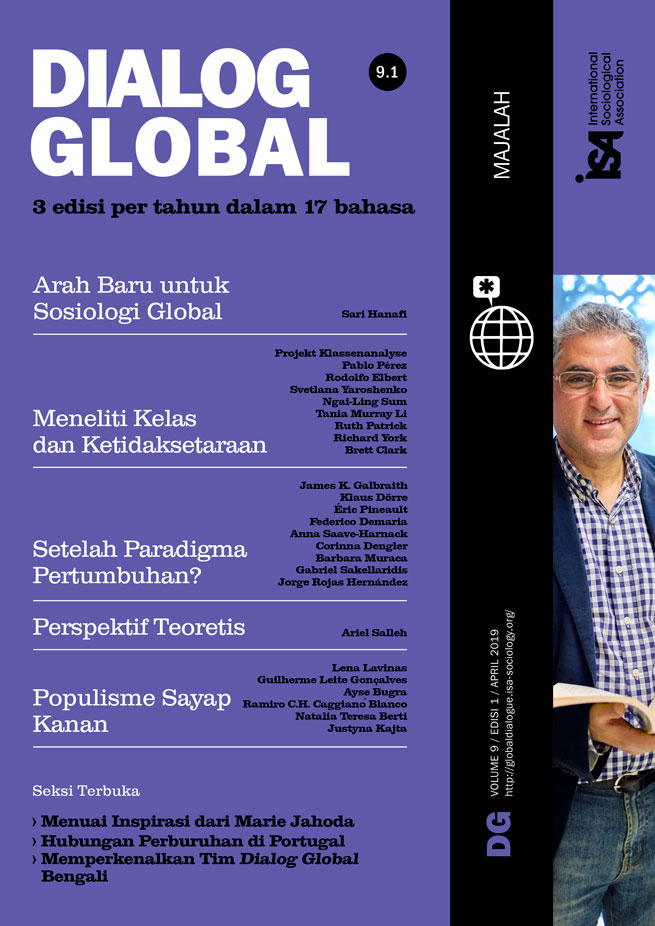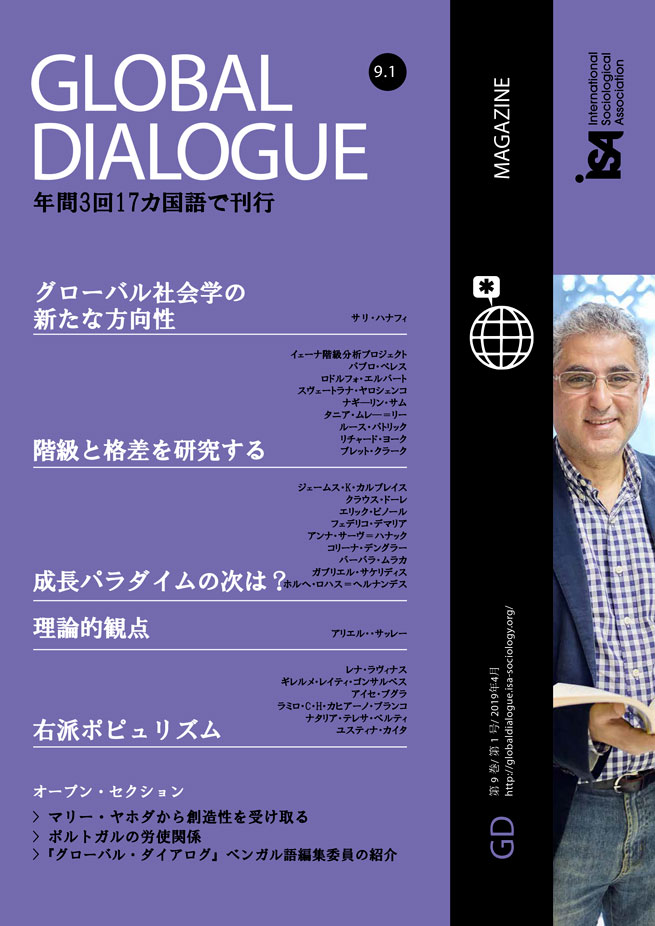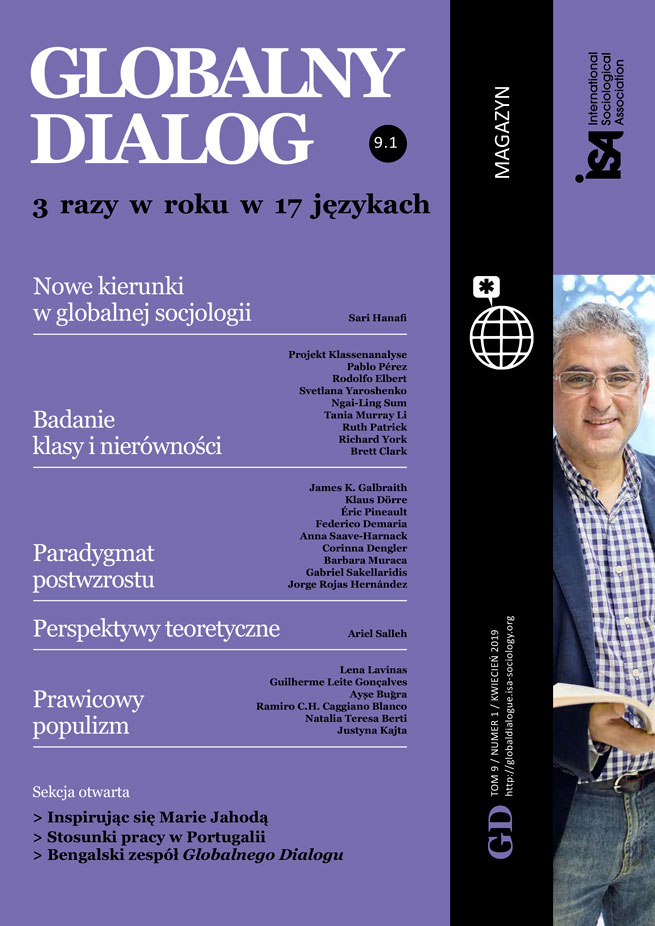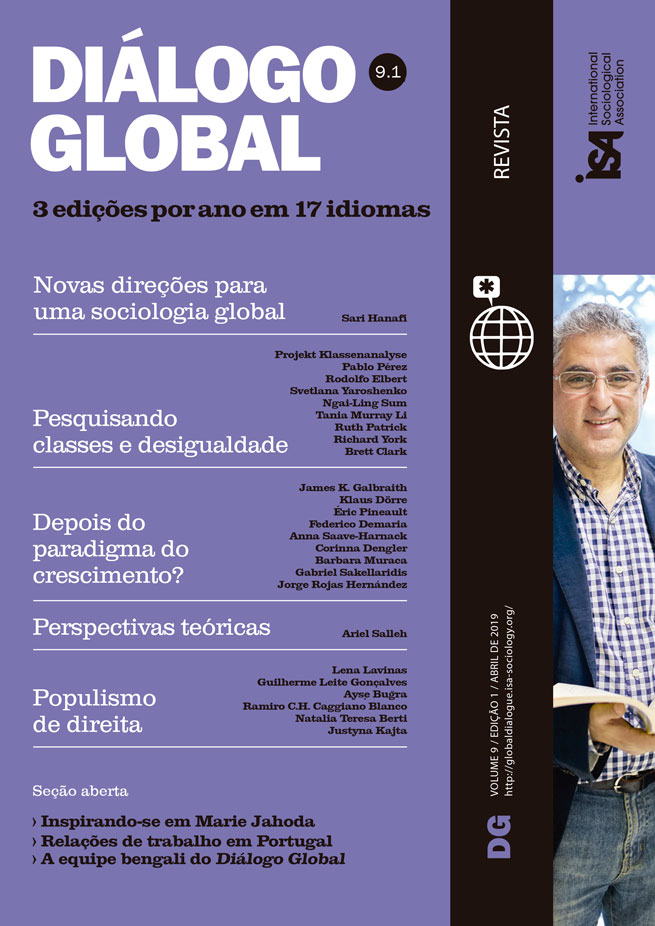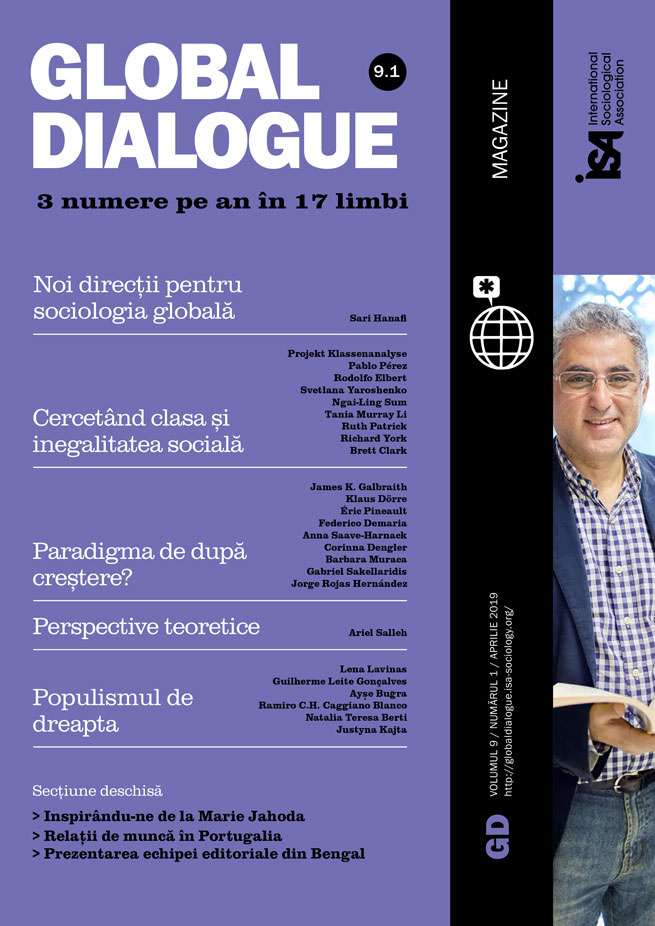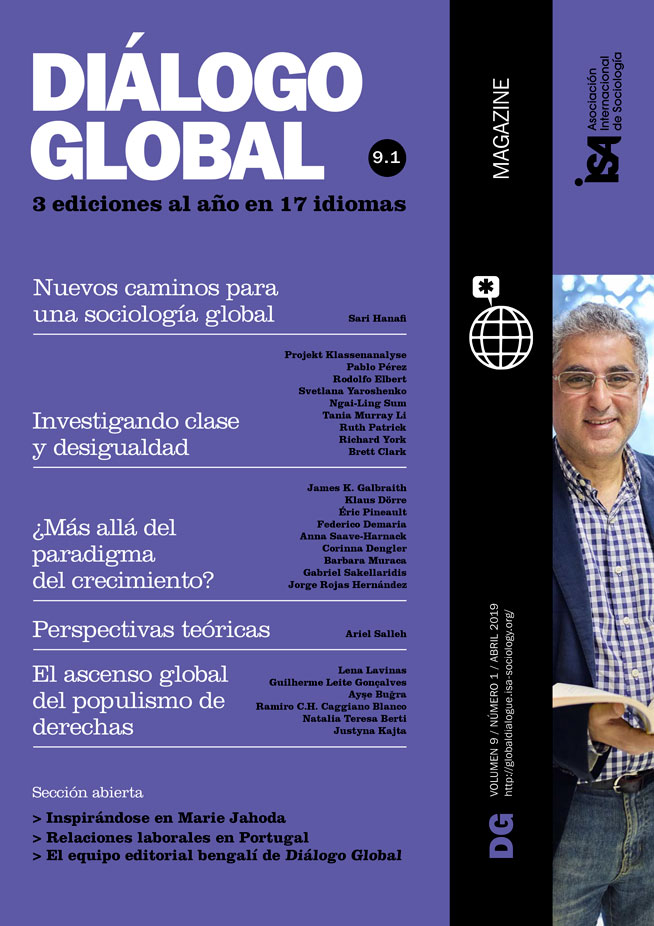The term “degrowth” might lead many to think of shrinking economies following the financial crisis of 2007. But this is not what degrowth is about. The activist slogan “their recession is not our degrowth!” clarifies that degrowth as an academic discourse and a social movement is not to be misunderstood as a description of negative growth within a growth paradigm (i.e. a recession). Rather, degrowth fundamentally questions this very paradigm and emphasizes the need to liberate societies from their dependence on the dictate of economic growth. This means that degrowth seeks and spells out possibilities for modern societies to reproduce without having to rely on constant acceleration, expansion, and the intensification of social and ecological exploitation. As concrete utopia, degrowth activism and scholarship envision a bottom-up transformation to a socially just and environmentally sustainable society, and suggest possible steps towards this bigger vision, from alternative collective practices to the transformation of basic institutions. Therefore – and this is another activist slogan – when talking about degrowth, we refer to “degrowth by design, not by disaster!”
And yet, if we look at the enforced economic degrowth in Greece, there are things that we, as degrowth scholars and activists, can learn. The declining growth rates following the financial crisis in Greece led to major societal challenges regarding social and public services. A de-growing economy meant that the civil society had to cope with austerity policies as a reaction to public debt. Hospitals, kindergartens, and neighborhood communal networks were created to alleviate the consequences of reduced public expenditure. Many of these initiatives arising from the manifest consequences of the economic crisis (i.e. degrowth by disaster), such as the solidarity clinic in Thessaloniki, do resemble idea(l)s that degrowth would want to construct “by design.” But they also speak to a well-founded feminist concern: in the Greek case especially, women were negatively affected by the crisis as they filled the gap created by austerity policies. While slightly more traditionally male jobs were lost, women shouldered the larger part of formerly public services especially in the realm of care work and activities related to social reproduction. The example of Greece could lead feminists to conclude that degrowth by disaster, but possibly also by design, can be very risky for women and likely to contribute to a re-traditionalization of social reproduction and care work. This feminist concern is further reinforced by scholarship outlining a degrowth path that does not call for a radical transformation of basic social institutions such as labor and a renegotiation of the conditions essential to a good life for all. Against this rather conservative understanding of degrowth, more radical perspectives, such as the lively discussion within the “Feminisms and Degrowth Alliance” (FaDA), highlight the emancipatory potential of a degrowth society, when built on guiding principles inspired for example by feminism in its different forms and traditions.
There have been intense discussions between feminist activists, scholars, and environmentalists long before the degrowth discourse gained momentum. For example, the subsistence perspective, developed in Germany in the 1980s, emphasized the interconnection between environmental concerns and the exploitation of women and colonies. The 1997 special issue of Ecological Economics on “Women, Ecology and Economics”was another milestone in this endeavor. While this dialogue is increasingly being considered by degrowth advocates, feminist reasoning is still not an integral part of the degrowth proposal.
We argue that degrowth still has much to learn from feminist traditions; feminist contributions are essential for achieving the just and solidarity-oriented social-ecological transformation that degrowth envisions. First, a core insight of ecological feminism is that “nature” (which in the Western tradition of thought is constructed as “female”) and “social reproduction” (which is assumed to occur “naturally”) are the very basis of every production process in capitalist economies. Yet, within the capitalistic growth paradigm both are structurally devalued, made invisible, and destroyed on a daily basis. Degrowth needs to take into account the parallel exploitation and devaluation of social and ecological reproduction and make them a key component of its struggle in order to bring about more sustainable human-nature relationships. Second, feminist theory long ago unveiled the power relations embedded in the growth paradigm. For example, Maria Mies’ 1986 account of the relationship between patriarchy and “the paradigm of never-ending accumulation and ‘growth’” shows that a cross-fertilization between feminist and degrowth movements is not only possible but essential in order to fully address structures of oppression in capitalism. Third, feminism has articulated theories and supported practices of organizing care as a commons, against the reallocation of care to families or the private sector that economic shrinking without transformation inevitably brings about. Amaia Pérez Orozco’s account of the “sustainability of life” offers a valuable starting point for envisioning care in a degrowth society. A “commonization of care” would also support individual, often female caregivers, and provide a social place for caregivers to meet, exchange, and develop a political voice, as pointed out for example by Silvia Federici. This way of organizing care work could serve as inspiration for a wider range of degrowth practices.
Although much is to be gained by fostering dialogues between feminism and degrowth, there are also challenges to such an endeavor. Some strands of feminism may be less likely to participate. Even among the most likely conversational partners – ecological feminism and degrowth – the different terminologies they rely on might cause a mutual lack of understanding.
Moreover, given the real and felt urgency of the accelerating ecological disaster, interventions risk neglecting the implications for more vulnerable social groups, including those who typically carry out social reproduction. As Federici has recently (2018) shown, we are faced with an alarming increase worldwide of violence against women, especially those in charge of holding local communities together through subsistence, indigenous knowledge, and care. The violence is spearheaded by a renewed wave of global “enclosures” under the neoliberal crusade to secure growth for the elites. This is why it is of utmost importance for degrowth activism and scholarship, even in the face of time pressure, not to fall into the trap of playing down the challenge of patriarchy which, as we have pointed out earlier, is closely tied to the capitalist growth paradigm.
The challenge of making feminism an integral part of the degrowth movement is reflected by the lively discussion in the FaDA network. Some members argue that instead of trying to build an alliance between the two discourses and movements, thereby framing their relation as a mere possibility and highlighting differences in the common struggle, there should be a focus on the foundational relation of the two. A radical transformation of society beyond the growth paradigm can only be achieved by addressing the capitalist growth dictate and its deep patriarchal roots in conjunction. Integrating feminism and degrowth is a project in the making to which we are all invited. It is our duty to engage in the global dialogue to create a feminist degrowth society!
Anna Saave-Harnack, University of Jena; Germany <anna.saave-harnack@uni-jena.de>
Corinna Dengler, University of Vechta; Germany <corinna.dengler@uni-vechta.de>
Barbara Muraca, Oregon State University, USA <Barbara.Muraca@oregonstate.edu>
